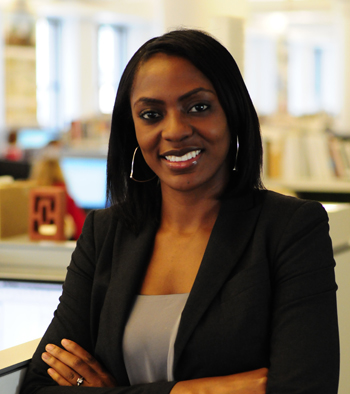
What is your name, age, and location?
Erica Ginsberg, 40, Washington DC Metropolitan Area.
What is your profession?
Executive Director, Docs In Progress, a nonprofit arts organization which helps emerging (and aspiring) documentary filmmakers find their voice and community.
What did you study in school and what degrees do you have?
I have a B.A. in International Affairs from the George Washington University and an M.A. in Film & Video from American University.
What was your first job?
My first job of any kind was shelving books in my local public library when I was still in high school (in the days when Sidney Sheldon and Danielle Steele were the top fiction picks for library checkouts). I also did some temp work but that didn’t last long because one boss told me to look for the credenza file and I didn’t have any clue what a credenza was and kept looking fruitlessly for a file for Mr. Credenza.
What I consider my first adult job was working as an Administrative Assistant in the Department of State office which provides foreign language interpreters to the President and other top U.S. officials. I started there as a summer intern after my freshman year of college and ended up staying more than 10 years.
Who or what inspired you to break into your current line of work?
I was always interested in art, even in high school, but I was also interested in international issues. After I had worked for a few years at the Department of State, I decided to revisit my interest in the arts by getting a master’s in film and finding a way to combine my two passions. I ended up producing a documentary about post-war life in former Yugoslavia. The process of making that documentary made me realize how lonely a field it could be without the support of friends, colleagues, and institutions. And that’s really where the idea for Docs In Progress originated.
Name/describe what has been your most rewarding project so far?
Docs In Progress itself is my most rewarding project. I quit a comfortable government job to run an arts nonprofit in one of the worst economies in recent history. But I have never regretted it. Just knowing that the work I do can help other people realize their dream of making a documentary, help a filmmaker get through a creative block, or introduce new audiences to documentary as both a form of expression and as a change-agent inspires me every day.
Name/describe one incident when being a woman has helped your career?
I joined an organization while I was in graduate school in Washington DC called Women in Film and Video. Although the organization welcomes men as active members, I don’t know if I would have felt as comfortable getting deeply involved in the organization had I been a man. It was (and is!) an amazing organization for networking and professional development. Many of the people I have worked with and the inspirations I have gotten to do what I do today have come through connections made through that organization.
Name/describe one incident when being a woman has hindered your career?
I can’t say it has ever hindered my career, but I remember one government internship experience in my 20s where I was asked to do all these ridiculous things for a bigwig including writing his son’s resume and manage forwarding his magazine subscriptions which had come to the office (including a certain men’s magazine). I know I never would have been asked to do that if I was a male intern.
Who is your role model or mentor (alive or dead)?
One of my first bosses at the Department of State. She taught me a lot about how to find that delicate balance between being a strong person while retaining warmth and good interpersonal skills as key attributes of being an effective leader.
If you could give one piece of advice to a woman starting out in your field, what would it be?
You may mature but you’ll never stop growing up as long as you are alive. There’s nothing wrong with thinking about what you want to be when you grow up several times over the course of your life as long as you also think about how you will get there.
Links:
Docs In Progress on Facebook
– Interview by Elena Rossini

